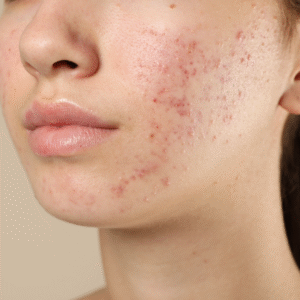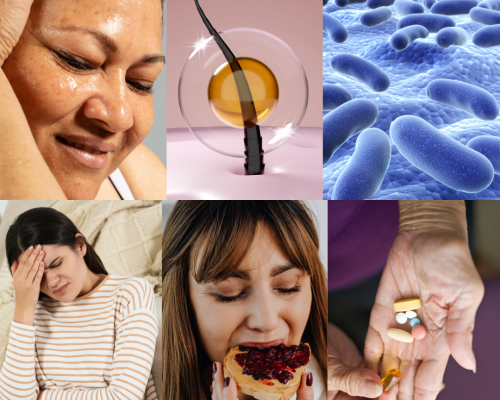Top 10 Proven Treatments for Acne That Actually Work
Acne is one of the most common skin concerns that affects millions of people worldwide, regardless of age, gender, or skin type. From occasional breakouts to severe, painful cysts, acne can not only impact your skin but also your confidence. The good news? Today, we have a wide variety of effective treatments to control and even eliminate acne. But before we dive into the top 10 proven solutions, let’s understand what acne actually is, what causes it, and the different types you might be dealing with.
🌟 What is Acne?

Acne is a bacterial skin infection that occurs when hair follicles become clogged with oil (sebum), dead skin cells, and bacteria. It most commonly appears on the face, neck, chest, back, and shoulders—areas with a high concentration of sebaceous (oil) gl
What Causes Acne?

Several factors contribute to the development of acne, including:
- Excess oil (sebum) production
- Clogged hair follicles
- Bacterial overgrowth (especially Propionibacterium acnes)
- Hormonal fluctuations (especially during puberty, pregnancy, or menstruation)
- Diet (especially high-glycemic foods, dairy)
- Stress
- Certain medications and cosmetics
Understanding the cause of your acne is crucial in choosing the most effective treatment.
Types of Acne
Not all acne is the same. Here are the main types:
- Whiteheads: Closed clogged pores.
- Blackheads: Open clogged pores.
- Papules: Small red, tender bumps.
- Pustules: Pimples with pus at their tips.
- Nodules: Large, painful lumps beneath the skin.
- Cysts: Deep, painful, pus-filled lumps that can cause scarring.
Each type requires a tailored approach to treatment.
Top 10 Proven Treatments for Acne That Actually Work
Here are ten dermatologist-approved therapies with good effectiveness for acne management:
1. Benzoyl Peroxide
Benzoyl peroxide is a potent over-the-counter remedy that helps dry out existing pimples and destroys bacteria that causes acne. It works particularly well for mild to severe cases of inflammatory acne.
Tip: Start with a lower concentration (2.5% or 5%) to avoid irritation.
2. Salicylic Acid
Salicylic acid is a powerful micro-exfoliator; it clears clogged pores, making it ideal for treating blackheads and whiteheads. It also reduces inflammation and redness.
Tip: Found in face washes, toners, and spot treatments.
3. Topical Retinoids (Adapalene, Tretinoin)
Derivatives of vitamin A called retinoid encourage cell division and keep pores clear. They are among the best long-term treatments for acne of all kinds.
Tip: Use sunscreen, as retinoids make your skin more sensitive to the sun.
4. Oral Antibiotics
For moderate to severe acne, dermatologists may prescribe oral antibiotics like doxycycline or minocycline to reduce bacteria and inflammation.
Tip: Not a long-term solution—usually combined with topical treatments.
5. Hormonal Therapy (For Women)
Acne is caused by hormonal imbalance; it can be treated with birth control pills or anti-androgens like spironolactone. These regulate hormones that increase oil production.
Tip: Consult your doctor before starting any hormonal treatment.
6. Chemical Peels
Chemical peels are one of the common treatments for acne; using salicylic acid, glycolic acid, or lactic acid can remove dead skin, excessive oil from skin, and unclog pores and improve overall skin texture. Best for mild to moderate acne and post-acne marks.
Tip: Should be done by professionals at a skin clinic.
7. Laser and Light Therapy
Laser and blue-light therapies target acne-causing bacteria and reduce oil gland activity. These are non-invasive options and useful for people with inflammatory or cystic acne.
Tip: Multiple sessions may be needed for lasting results.
8. Azelaic Acid
With its antibacterial and anti-inflammatory qualities, azelaic acid is a little-known but incredibly powerful remedy. It works effectively on post-inflammatory pigmentation and is perfect for sensitive skin.
Tip: Can be used alongside other treatments for better results.
9. Isotretinoin (Accutane)
Reserved for severe and resistant acne, isotretinoin is a powerful oral medication that targets all causes of acne. It significantly reduces oil production and shrinks oil glands.
Tip: Strictly under medical supervision due to potential side effects.
10. Customized Skincare Routine
Sometimes the best solution is consistency with a routine that suits your skin. A dermatologist can help you design a regimen with the right cleanser, moisturizer, exfoliant, and spot treatment.
Tip: Avoid over-cleansing and harsh scrubs, which can make acne worse.
Bonus Tips to Prevent and Manage Acne :
- Always remove makeup before bed
- Use non-comedogenic products
- Avoid touching your face
- Change pillowcases and towels regularly
- Stay hydrated and eat a balanced diet
When to See a Dermatologist:
If your acne is painful, widespread, or leaving scars, it’s best to consult a dermatologist. Early intervention can prevent long-term skin damage and restore your confidence.
Final Thoughts:
Acne might be common, but it’s also very treatable. From over-the-counter solutions to prescription medications and clinic-based procedures, there are many proven options to clear your skin. Remember, what works for one person might not work for another, so always consider your skin type and acne severity. A personalized approach, guided by a skin specialist, is often the key to long-term results.

